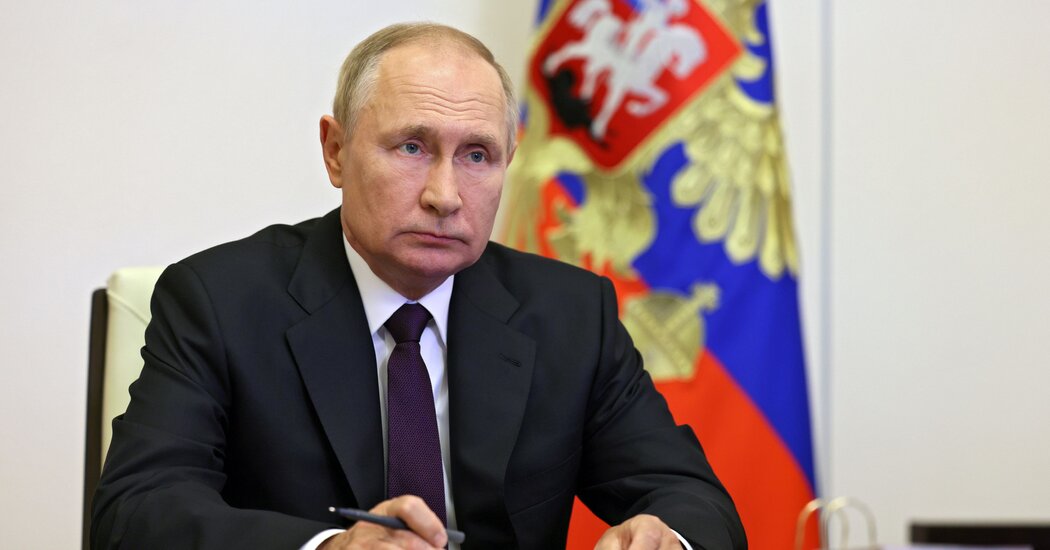U.S. Rebukes Russia for Claims of Secret Bioweapons in Ukraine
The State Department strongly criticized Russia on Tuesday for making what it called “spurious allegations” that the United States operated clandestine biological weapons laboratories in Ukraine.
The department accused Russia of abusing the formal review process of the Biological Weapons Convention, a treaty barring the manufacturing and use of deadly toxins or pathogens, by using a diplomatic meeting in Geneva last week as a platform to continue spreading disinformation to justify the war in Ukraine.
Russia used its authority as a signatory of the treaty, first adopted in 1975, to convene the meeting to air its repeated unfounded claims that the United States was operating secret biological labs in Ukraine and other countries along Russia’s periphery. The United States has repeatedly denied that, saying that in reality it provided financial and technical assistance to dozens of countries, including at one point Russia itself, to protect biological security and public health.
The meeting in Geneva, which took place behind closed doors, ended on Friday without an official finding on the accusations, but delegates of 35 of 89 nations either dismissed the Russian claims or expressed support for the kind of research the United States and Ukraine were conducting, the State Department said in a statement.
Only seven nations expressed support for Russia: Belarus, China, Cuba, Iran, Nicaragua, Syria and Venezuela.
The Spread of Misinformation and Falsehoods
China, whose leader, Xi Jinping, is to meet with President Vladimir V. Putin of Russia this week in Uzbekistan, stopped short of endorsing Russia’s claims. But its representative at the meeting, Li Song, said China was “deeply concerned” about the allegations and called for an independent international investigation of the United States’ activities involving biological research.
“My delegation believes that a series of specific questions raised by Russia have not yet received pointed response from the U.S.,” Mr. Li said, according to one of dozens of written statements posted by the United Nations Office of Disarmament Affairs.
The United States and other countries accused Russia of undermining the convention — and public health safety — by making unfounded claims about conducting nefarious activities under the cover of a treaty intended to ban biological weapons.
American officials noted that, until 2014, Russia itself participated in a Defense Department program that helped to dismantle old weapons programs and has since expanded to public health threats.
“These disinformation efforts are deeply cynical and serve only to harm international peace and security,” Poland said in a statement after last week’s meetings.
A number of other countries — including several that also have taken part in the Defense Department initiative, known as the Cooperative Threat Reduction Program — made noncommittal statements.
One of them, Turkey, a NATO ally, nonetheless took issue with one part of Russia’s allegation: that a Turkish-made drone was being configured to deliver the biological weapons supposedly under development in Ukraine. “Its technical specifications do not include any system or mechanism that can be used as biological weapons,” Turkey’s statement said of the drone, called the Bayraktar.
Although Russia faced broad criticism, it appeared unlikely to end its information campaign over the issue, signaling that it would continue to raise it at the United Nations General Assembly this month and at later sessions of the Biological Weapons Convention.
“No, it wasn’t a resounding success for Russia, but no one expected that it would be,” said Milton Leitenberg, an expert on the Soviet Union’s biological weapons program at the University of Maryland.
Even so, the effort gave the Russians a chance to claim there was no consensus. “It was exactly what the Russian government did it for,” Mr. Leitenberg said.




